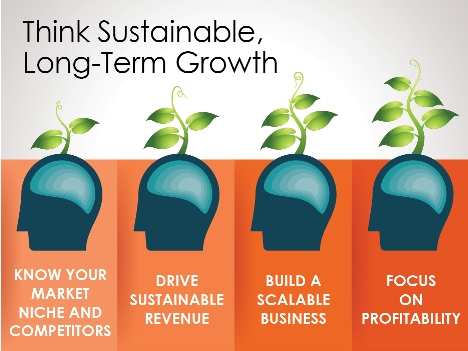In today’s rapidly changing world, businesses are increasingly recognizing the importance of sustainable growth. Sustainable business growth not only ensures long-term profitability but also contributes positively to society and the environment. This article explores the key strategies and benefits of adopting a sustainable approach to business growth.
Understanding Sustainable Business Growth
Sustainable business growth refers to the ability of a company to expand its operations and increase its profits while minimizing its negative impact on the environment and society. It involves balancing economic success with social responsibility and environmental stewardship.
Key Strategies for Achieving Sustainable Growth
1. Embrace Innovation
Innovation is at the heart of sustainable growth. By investing in research and development, businesses can create new products and services that meet the evolving needs of consumers while reducing environmental impact. Embracing technology and digital transformation can also lead to more efficient operations and resource management.
2. Focus on Resource Efficiency
Resource efficiency is crucial for reducing costs and minimizing environmental impact. Businesses can achieve this by optimizing their supply chains, reducing waste, and implementing energy-efficient practices. For example, adopting renewable energy sources and recycling materials can significantly lower a company’s carbon footprint.
3. Build Strong Relationships with Stakeholders
Engaging with stakeholders, including customers, employees, suppliers, and the community, is essential for sustainable growth. By fostering transparent and ethical relationships, businesses can build trust and loyalty, which are critical for long-term success. Listening to stakeholder feedback can also provide valuable insights for improving products and services.
4. Adopt a Long-Term Perspective
Sustainable growth requires a shift from short-term profit maximization to long-term value creation. Businesses should focus on strategies that ensure their viability and relevance in the future. This includes investing in employee development, maintaining high ethical standards, and considering the broader impact of business decisions.
5. Implement Corporate Social Responsibility (CSR) Initiatives
Corporate Social Responsibility (CSR) initiatives demonstrate a company’s commitment to social and environmental causes. By supporting community projects, promoting diversity and inclusion, and ensuring fair labor practices, businesses can enhance their reputation and attract socially conscious consumers.
Benefits of Sustainable Business Growth
1. Enhanced Brand Reputation
Companies that prioritize sustainability often enjoy a stronger brand reputation. Consumers are increasingly favoring brands that demonstrate a commitment to ethical practices and environmental responsibility. A positive reputation can lead to increased customer loyalty and market share.
2. Cost Savings
Sustainable practices can lead to significant cost savings. By reducing energy consumption, minimizing waste, and optimizing resource use, businesses can lower their operational expenses. These savings can be reinvested into further growth initiatives.
3. Increased Resilience
Sustainable businesses are better equipped to navigate economic fluctuations and regulatory changes. By diversifying their operations and reducing reliance on finite resources, they can mitigate risks and adapt to changing market conditions more effectively.
4. Attracting and Retaining Talent
Employees are increasingly seeking employers that align with their values. Companies that prioritize sustainability are more likely to attract and retain top talent, leading to a more motivated and productive workforce.
Conclusion
Sustainable business growth is not just a trend; it is a necessity for companies aiming to thrive in the modern world. By embracing innovation, focusing on resource efficiency, and building strong stakeholder relationships, businesses can achieve long-term success while making a positive impact on society and the environment. As more companies adopt sustainable practices, they contribute to a more equitable and sustainable future for all.
By focusing on these strategies, businesses can position themselves as leaders in sustainability and ensure their growth is both profitable and responsible.

